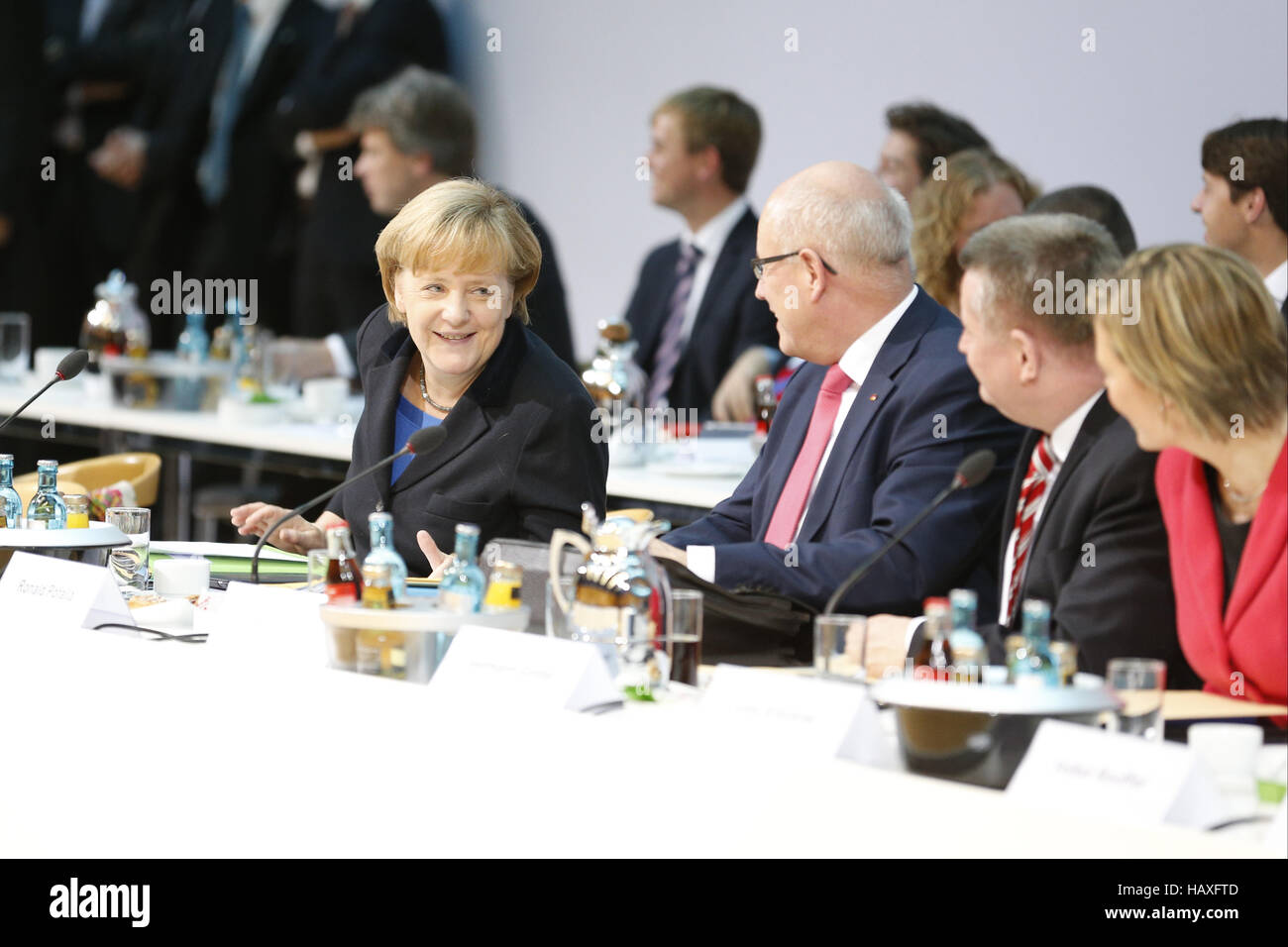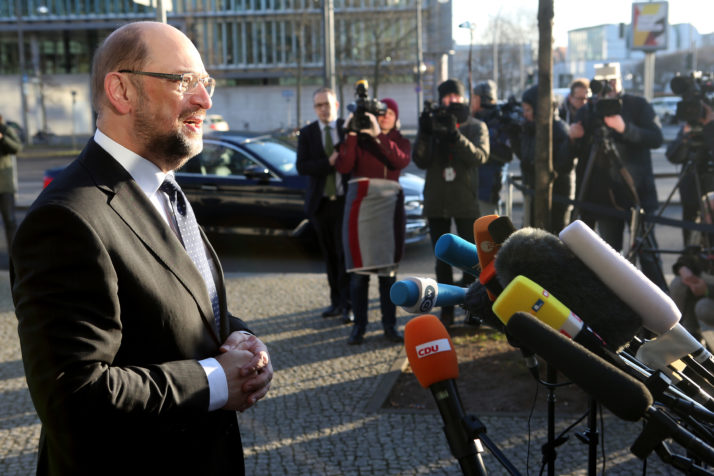Germany's SPD: Coalition Negotiations Amidst Youth Protests

Table of Contents
The Current Coalition Negotiations
The formation of a new German government following the 2021 federal election is proving to be a protracted and challenging affair. The SPD, as the largest party, is leading the negotiations, primarily with the Greens and the Free Democratic Party (FDP). These German government formation talks are proving far more difficult than initially anticipated.
- Challenges in agreeing on key policy areas: Significant disagreements persist on crucial policy issues. Climate change policy, in particular, presents a major hurdle, with differing views on the speed and scale of decarbonization efforts. Economic policy, including tax reform and social welfare spending, also constitutes a significant point of contention within the coalition negotiations.
- Internal disagreements within the SPD: The SPD itself is not a monolith. Internal factions hold differing views on the extent of compromise necessary to secure a coalition agreement. This internal debate significantly impacts the SPD's negotiating position and its ability to present a unified front.
- The role of other potential coalition partners and their influence: The Greens and the FDP each hold significant leverage in the negotiations, pushing for policies reflecting their respective party platforms. Their influence on the final coalition agreement will significantly shape the future policy direction of the German government.
- Potential timelines and outcomes of the negotiations: The timeline for completing the coalition negotiations remains uncertain. Potential outcomes range from a stable three-party coalition to a failure to form a government, leading to new elections. The success of the SPD in navigating these German government formation talks will significantly shape its future political standing.
The Rise of Youth Protests and Climate Activism
The scale and intensity of youth-led protests in Germany, most notably the Fridays for Future movement, are undeniable. These protests are significantly impacting the political landscape, exerting considerable pressure on all parties involved in the coalition negotiations, particularly the SPD.
- Key demands of youth activists: Youth activists are demanding ambitious and immediate climate action, going beyond the commitments made by existing parties. Their demands also extend to broader social justice issues, including economic equality and affordable housing.
- The level of public support for these protests and their influence on the political landscape: Public opinion polls show significant support for the youth climate movement, highlighting the growing public concern about climate change and its potential consequences. This widespread support translates into significant political pressure on parties like the SPD.
- How the protests are impacting the coalition negotiations, specifically pressuring the SPD: The visibility and unwavering determination of the youth protests are directly influencing the coalition talks. The SPD is under pressure to demonstrate a commitment to ambitious climate policies to retain public support and avoid alienating this influential demographic.
- Examples of specific policy demands influencing the SPD's negotiating positions: The youth movement's demands for a rapid phase-out of coal, substantial investments in renewable energy, and a significant increase in climate financing are directly impacting the SPD’s negotiating positions within the coalition talks.
SPD's Response to Youth Activism and its Impact on Negotiations
The SPD has publicly acknowledged the urgency of the climate crisis and the legitimacy of youth concerns. However, translating this into concrete policy within the constraints of coalition negotiations presents a significant challenge.
- How the SPD is attempting to balance the demands of youth activists with the realities of coalition negotiations: The SPD is attempting to find a balance between ambitious climate targets and the pragmatic realities of coalition compromises. This involves internal discussions and careful consideration of the other coalition partners’ positions.
- Specific policy proposals from the SPD related to climate change and social justice: The SPD has put forward proposals aimed at accelerating the energy transition, investing in green technologies, and strengthening social safety nets. However, the specifics of these proposals remain subject to ongoing negotiations.
- Internal debates within the SPD regarding how to respond to youth activism: The SPD faces internal debate on the best approach to addressing youth demands. Some favor more radical action, while others prioritize pragmatism and coalition stability.
- Potential political risks and opportunities for the SPD related to their handling of this issue: The SPD’s response to youth activism will significantly impact its electoral prospects. Successfully addressing these concerns could boost its popularity, while failing to do so risks alienating a crucial segment of the electorate.
Public Opinion and the SPD's Future
Public opinion on climate change and youth activism plays a decisive role in the SPD's political future.
- Polling data illustrating public attitudes towards climate change and youth protests: Recent polls show a clear majority of Germans support stronger climate action and sympathize with the youth climate movement. This support puts pressure on the SPD to act decisively.
- How the SPD's handling of these issues could affect their electoral prospects: The SPD's ability to effectively respond to youth concerns and deliver on ambitious climate policies will significantly impact its electoral performance in future elections.
- Analysis of potential long-term consequences for the SPD depending on their negotiation outcomes and policy choices: The long-term consequences for the SPD depend on whether they can successfully balance the needs of coalition partners with the demands of youth activists and public opinion. Failure to do so could lead to a decline in support and impact the party’s long-term viability.
Conclusion
Germany's SPD faces a complex challenge: navigating intricate coalition negotiations while simultaneously responding to the growing demands of a powerful youth activist movement. The interplay between these two factors will significantly shape the party's future trajectory and influence the policy direction of the next German government. The SPD's success in managing this delicate balance will determine its long-term political viability and its ability to resonate with a public increasingly concerned about climate change and social justice. Stay informed about the ongoing developments within Germany's SPD and the evolving dynamics between coalition negotiations and youth protests. Continue to follow our coverage for in-depth analysis of Germany's political landscape and the future of Germany's SPD.

Featured Posts
-
 Xrp On The Brink Examining Etf Potential Sec Actions And Ripples Impact
May 01, 2025
Xrp On The Brink Examining Etf Potential Sec Actions And Ripples Impact
May 01, 2025 -
 Alqdae Almghrby Yudyn Ryys Shbab Bn Jryr Abrz Nqat Alhkm
May 01, 2025
Alqdae Almghrby Yudyn Ryys Shbab Bn Jryr Abrz Nqat Alhkm
May 01, 2025 -
 German Coalition Deal Sources Predict Agreement By Midday
May 01, 2025
German Coalition Deal Sources Predict Agreement By Midday
May 01, 2025 -
 Million Pound Giveaway Scandal Investigating Claims Against Michael Sheen And Channel 4
May 01, 2025
Million Pound Giveaway Scandal Investigating Claims Against Michael Sheen And Channel 4
May 01, 2025 -
 Amy Irvings Mother Priscilla Pointer Passes Away At Age 100
May 01, 2025
Amy Irvings Mother Priscilla Pointer Passes Away At Age 100
May 01, 2025
